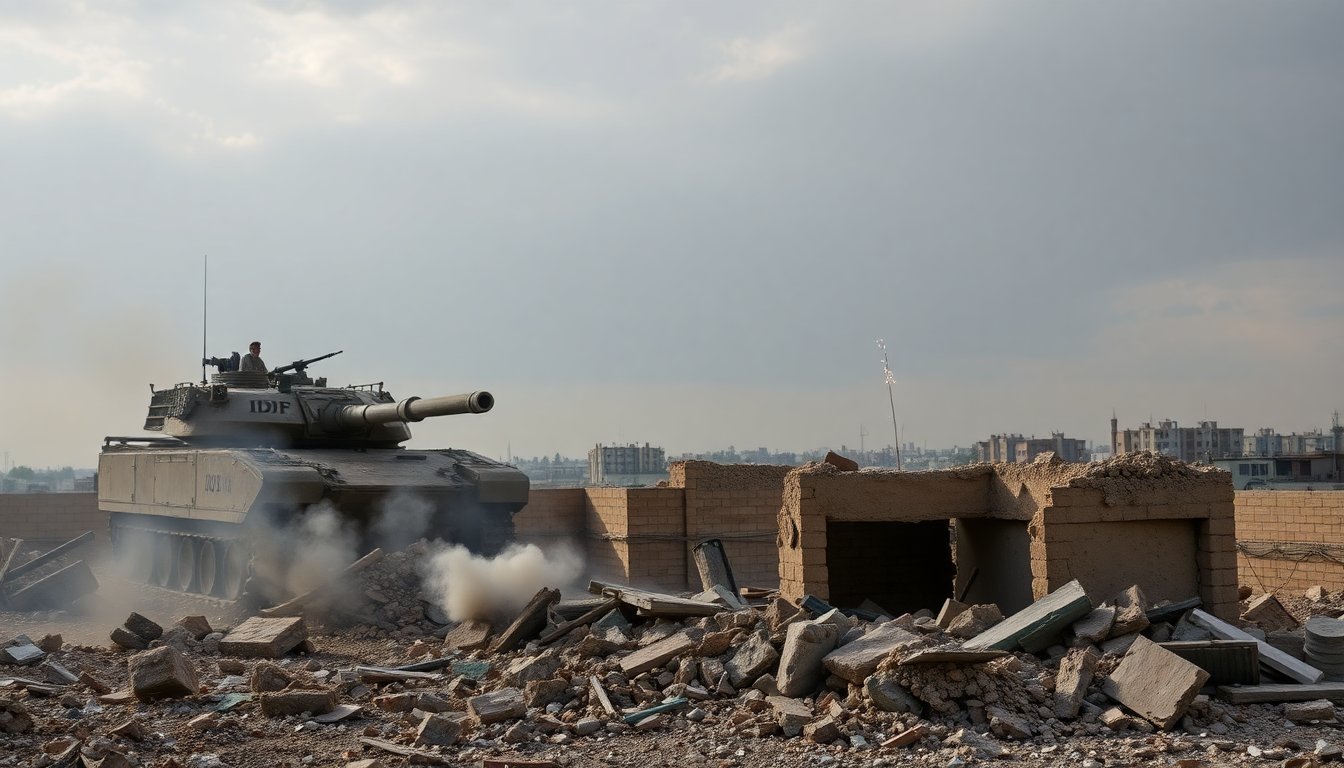Table of Contents
The Israeli Defense Forces (IDF) have reported ongoing military strikes in the Gaza Strip, despite the announcement of an officially declared cease-fire. This situation raises significant questions about the effectiveness of the cease-fire and the broader conflict in the region.
Understanding the military rationale
The IDF justifies its actions by stating that they are targeting specific militant groups perceived as immediate threats. Military spokespersons claim these operations aim to neutralize individuals or vehicles that do not comply with warnings issued by Israeli forces. This situation underscores a complex balance between maintaining security and adhering to cease-fire protocols.
Threat assessment and operational responses
In military operations, the Israel Defense Forces (IDF) prioritize real-time threat assessments. The military asserts that any vehicle approaching or lingering near sensitive areas without following directives represents a potential risk. Such actions are viewed as legitimate responses to perceived dangers, thereby justifying military strikes even during periods of supposed calm.
Implications of continued military strikes
The ongoing Israeli military operations during a cease-fire have significant implications for the region. These strikes complicate peace and reconciliation efforts, as they can escalate tensions and provoke retaliatory actions from Palestinian factions. This volatile environment fosters a cycle of violence that undermines diplomatic initiatives aimed at achieving long-term stability.
International reactions to military activity
The international community is closely monitoring the situation, expressing concern over the potential for renewed conflict. Various organizations and countries have called for restraint and adherence to cease-fire agreements. They emphasize the need for a comprehensive approach to peace negotiations. Ongoing military strikes are viewed as obstacles to achieving lasting peace and may lead to increased scrutiny of Israel’s military strategies.
Looking ahead: prospects for peace
As the situation evolves, the critical question arises: can effective peace negotiations take place while military actions continue? The main challenge is to foster dialogue while adequately addressing security concerns. Any sustainable resolution will likely require both sides to reevaluate their tactics, concentrating on building trust rather than escalating hostilities.
The landscape in Gaza underscores the complex dynamics of military engagement during a cease-fire. The Israeli military’s justification for ongoing strikes reveals the difficulty of balancing security needs with the pursuit of peace. As regional tensions persist, the road to reconciliation faces significant challenges, necessitating collaborative efforts from all involved parties.


